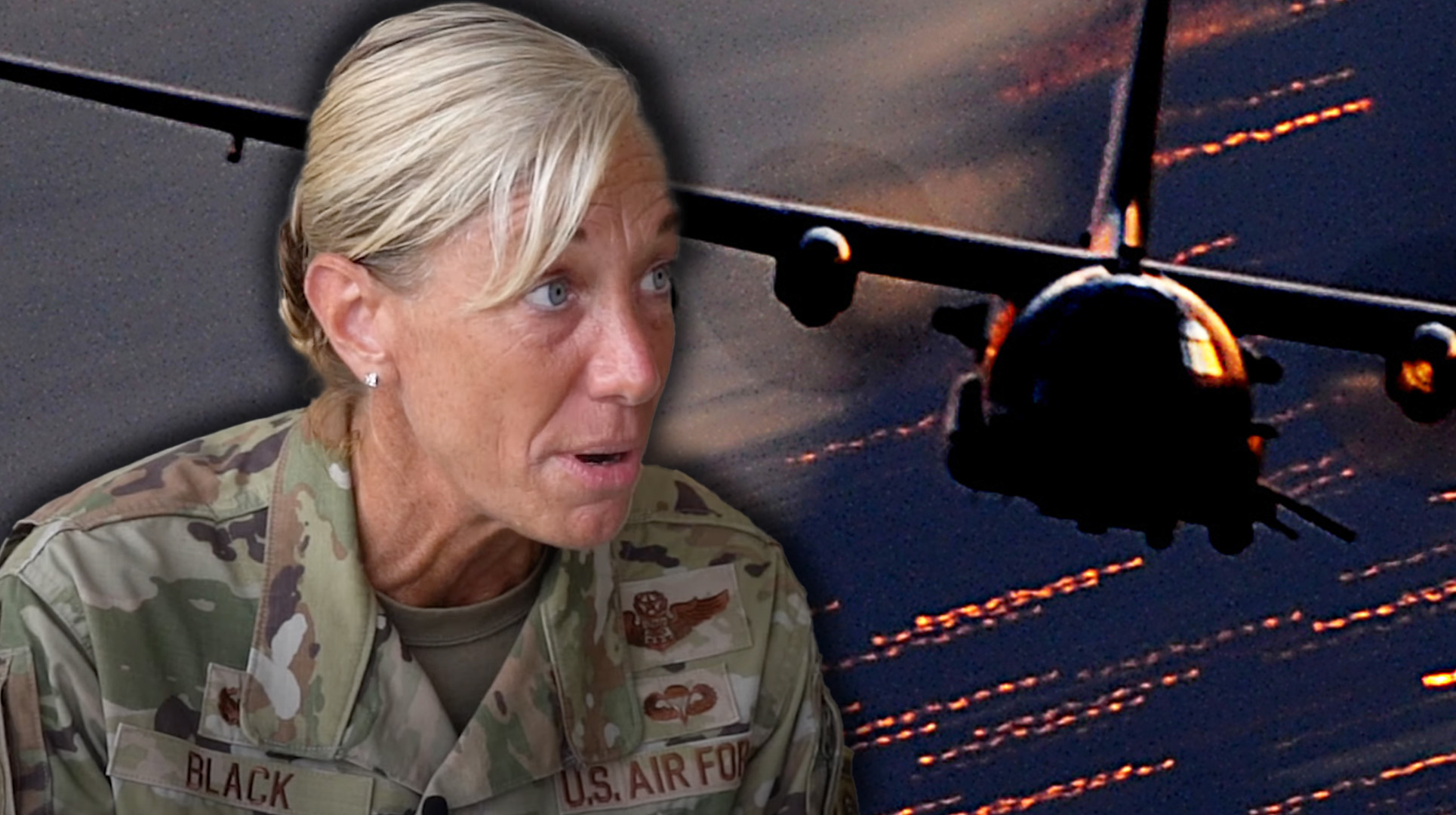
The woman whose call-for-fire transmissions over post-9/11 battlefields earned her the nickname “the Angel of Death” relinquished her final command in the Air Force Friday.
Col. Allison Black turned over command of the 1st Special Operations Wing at a change of command ceremony at Hurlburt Field, Florida on Friday and plans to retire later this year, according to the Air Force. Black’s 32-year career in the Air Force began as an enlisted survival instructor, teaching field skills and ground evasion tactics to aircrew, and finishes with command of wing long at the hub of the service’s special operations world.
But it was during the battle for Kunduz, Afghanistan in late 2001 that Black, then a 1st Lt., became “the Angel of Death” over the first battlefields after 9/11, carving a legacy in the Air Force and special warfare history, along with a memorable milestone for women in modern combat.
Just weeks after 9/11, Black was on her first combat flight as a navigator on an AC-130 gunship, flying toward the Afghan city of Kunduz. In the darkness below was “Tiger 02,” the callsign for Special Forces ODA 595, a dozen Green Berets who would soon be known as “‘”the horse soldiers.” As part of Task Force Dagger’s assault on the Taliban, the team fought their way across Afghanistan on horseback.
But as Black’s crew raced toward Kunduz, Tiger 02 was outnumbered by a determined Taliban force gathering in a nearby compound.
Birth of a nickname
Overhead, Black talked with the team’s air controller, passing word on the Taliban force they could see from the air and confirming targeting information.
“On one particular part of the mission, we saw a vehicle approaching our friendly location,” Black said. “And my job on the AC-130 is to relay everything that we’re seeing through our sensors. I was likely, the only female aviator talking on a radio, so if I screwed up, everybody was going to know it was me. So I was pretty pretty particular about what I was saying.”
Riding with Tiger 02 was a senior Afghan warlord, General Abdul Rashid Dostum, a legendary combat leader who had battled the Soviets as a young man and lead the resistance to the Taliban in the years before 9/11.
But to hear Black’s voice calling for targets with the team’s air controller was beyond his experience.
“He looked at our American Special Forces and said, ‘is that is that a woman?’” Black said in an interview for the Air Force. “And they’re like, ‘as a matter of fact, it is.’ He’s like, ‘oh, America is so determined, they bring their women to kill Taliban.’ He couldn’t believe it.”
The truck on the road pulled into a compound, where Black’s crew saw close to 30 fighters. With approval from Tiger 02, the AC-130 fired 400 rounds of 40mm and 200 rounds of 105mm cannon fire into the compound. As the rounds impacted, at least 200 more fighters emerged from the buildings.
Riding with Dostum and the Green Berets was a former Taliban leader, Mohammed Fazal, who was actively speaking with the Taliban group on a separate radio frequency, a Special Forces soldier later told PBS’s Frontline.
“Dostum brings Fazal near the radio so that he can hear this female voice,” the soldier said in an anonymous interview with the program. “Fazal hears her voice as it’s being explained to him, through the translators, that we have the ‘angel of death’ overhead… and we possess the death ray.”
The death ray was the laser pointer the AC-130 crews used to pinpoint targets on which to train its guns — but the Afghan fighters believed the laser itself was the weapon.
And the “Angel of Death” nickname was born.
“If they don’t surrender now all of their troops will burn in hell,” the soldier recalled Dostum telling the Taliban leader. “Fazal jumped on the radio and his men were surrendering within minutes.”
“We got to disgrace the enemy and protect our friendly forces,” Black said.
[embedded content]
In the weeks that followed, Black and her crew pounded Taliban targets for weeks as the horse soldiers and other Special Forces teams moved with Afghan allies toward Kabul. Eventually, ODA 595 pulled out of Afghanistan, returning to the AC-130’s base in Uzbekistan — the first time the flight crews and the soldiers had met face to face.
The soldiers handed Black an AK-47 — a gift for Dostum to the Angel of Death.
And the story, the soldiers told her, had already spread.
“General Dostum went to a burka unveiling ceremony for Afghan women,” Black said. “And he told them about American women on the battlefield, specifically me, and said America allows their women to do so many things. And if you continue to fight against the Taliban, you one day will have those same freedoms.”
2,000 hours of combat
Over the next two decades, Black Black racked up over 2,000 hours of combat missions, commanded a squadron of U-28 Draco special operations planes and served as senior leadership with Air Force Special Operations Command before assuming command of the 1st SOW at Hurburt.
“That story started in 2001, just by me being a part of a great crew and my role just happened to be on the radios,” she told the Air Force. “I was just trying to do my job. But I realize the impact that’s had. I’ve had Afghan women who are now in the United States had heard that tale. And when we cut crossed passage shared the inspiration. Little did I think that a little piece of just doing a mission would make that kind of an impact.”
